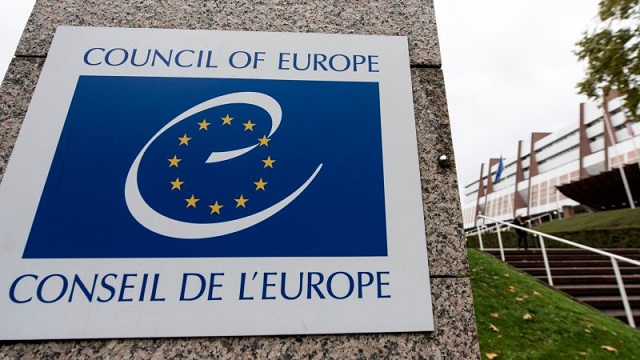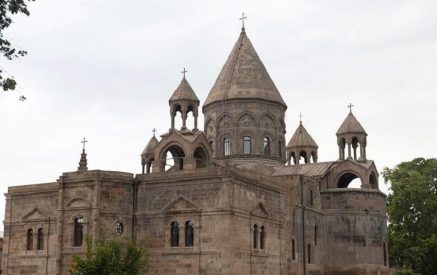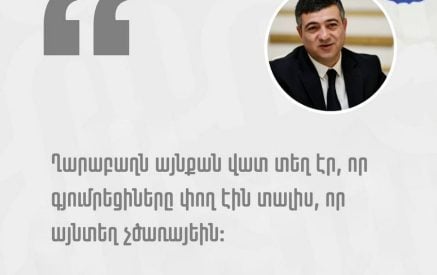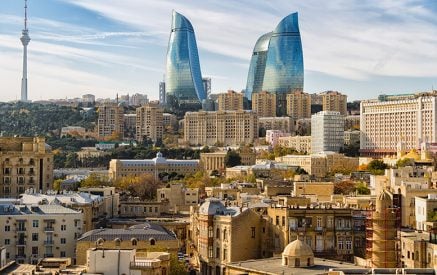The Council of Europe’s Committee for the Prevention of Torture (CPT) in its new report on its periodic visit to Armenia in December 2019, welcomed some positive developments in the penitentiary system (progress in addressing overcrowding, easier transfers of inmates to outside hospitals, significant facilitation of contacts with the outside world, no allegations of ill-treatment by staff). However, it noted with grave concern that some of its long-standing recommendations concerning the legal safeguards for persons in police custody, the material conditions, regime and health care in prisons, as well as staffing levels and legal safeguards in psychiatric establishments, remain to be implemented. The report was published together with the response of the Armenian Government (see the executive summary of the report).
The report covers the situation in the police establishments visited (Detention Centre of Yerevan City Police Department, as well as Kotayq, Armavir, Artashat, Goris, Hrazdan, Kapan, Sevan and Nairi Police Divisions), penitentiary establishments (Armavir Prison, Central Prison Hospital, Goris Prison, Hrazdan Prison, Nubarashen Prison, Sevan Prison and Yerevan-Kentron Prison), psychiatric establishments (Armash Health Centre, Forensic Psychiatric Unit of the National Centre for Mental Health Care and Syunik Psychiatric-Neurological Dispensary), as well as Dzorak Social Care Centre for Persons with Psychiatric Disorders.
As for police establishments, practically no complaints of ill-treatment in police custody were received. However, the practice of “informal talks” (i.e. persons being “invited” to come to the police, prior to being officially declared a suspect and prior to drawing up the protocol of detention, and frequently de facto held in what would appear to be unrecorded custody, for periods of hours and even days), criticised by the CPT many times in the past, has not been fully eliminated, especially outside Yerevan. The Committee once again calls upon the Armenian authorities to stop this practice.
The situation with respect to the legal safeguards against ill-treatment (in particular, notification of custody, access to a lawyer, and information on the aforementioned rights) has remained unchanged since the 2015: these safeguards were operating satisfactorily in practice, but only as from the moment when the police custody was formalised and duly recorded. Therefore, those invited for “informal talks” could not exercise these rights. Material conditions in cells of police establishments continued to be generally satisfactory.
Read also
As far as prisons are concerned, none of the prisons visited in 2019 was overcrowded, which is a very positive and welcome development. The Committee equally welcomes the plans of the Armenian authorities to close down, by the end of 2022, several old prisons that it visited (Goris, Hrazdan, Nubarashen, Yerevan-Kentron, as well as the Central Prison Hospital) where material conditions vary from very poor to just about acceptable and to replace them with new prisons or units.
While no credible allegations of physical ill-treatment by staff were received, inter-prisoner violence, intimidation and extortion remained a problem in most of the establishments and it was clearly related to the persistent influence of the informal prisoner hierarchy. The phenomenon was demonstrated by the continued existence of strikingly better, bordering on the “luxurious” prisoner accommodation and the presence of large amounts of prohibited items (including mobile phone and drugs) inside prisons, related with trafficking and extortion organised and controlled by criminal “bosses”.
In the Central Prison Hospital, too, what struck the delegation was that while many – if not most – sick prisoners had to live in poor conditions not befitting a health-care facility, some prisoners – who generally did not appear ill at all and tended to stay at the establishment for a very long time (up to 6 years) – obviously enjoyed very comfortable conditions. The delegation’s distinct impression was that for those prisoners (clearly belonging to the higher echelons of the informal prisoner hierarchy) the Central Prison Hospital was in fact akin to a “luxurious hotel” rather than a place where they would be treated for any ailments. The Committee requested the Armenian authorities to provide their explanation as to how this striking situation has been allowed to develop and persist at the Central Prison Hospital. More generally, it calls upon the Armenian authorities to take resolute steps to put an end to the existence of the informal prisoner hierarchy, and to step up their efforts to combat inter-prisoner violence.
In all the prisons visited, the delegation again received complaints about access to specialised health care, and as in 2015, inmates were expected to pay for necessary prescribed medication from their own pocket, or have these medicines sent to them by their relatives. The CPT has called upon the Armenian authorities to ensure that all prisons are supplied with appropriate medication, free of charge for the inmates. Urgent measures should also be taken to prevent further loss of prison healthcare staff by rendering the work more attractive.
The delegation was very concerned to observe that, as in 2016, none of the prisons visited offered anything remotely resembling a regime of organised constructive out-of-cell activities; there was still no individual sentence planning and hardly any preparation for release, and the lack of work opportunities for inmates meant that most of them could not qualify for early release.
On the positive side, the delegation noted simplification of administrative procedures for transfers of inmates to outside hospital facilities, taking out of service old “kartzer” cells, increasing visiting entitlement for prisoners, and the fact that the visits are taking place in open conditions, as well as the possibility for foreign prisoners to use Voice over Internet Protocol free of charge to contact their relatives.
As for psychiatric establishments, while the delegation received no allegations of ill-treatment of patients by staff at the Forensic Psychiatric Unit and Syunik Dispensary, at Armash Health Centre, however, the delegation heard some complaints that orderlies (“sanitars”) sometimes shouted at patients and pushed them. On a positive note, seclusion was not used and there was no excessive resort to mechanical or chemical restraint in the hospitals visited. The delegation also noted that the placement of forensic patients was reviewed every six months, but, despite the Committee’s repeated recommendations, a periodic review was still lacking in the context of involuntary civil hospitalisation.
As for living conditions, at the Forensic Psychiatric Unit, despite some minor improvements since the CPT’s visits in 2010 and 2015, patients are still accommodated behind locked barred gates in rather dilapidated and austere dormitories. The CPT calls upon the Armenian authorities to finally rectify the many long-standing deficits there. In the other two hospitals visited, despite some partial renovations, patients’ bedrooms and day areas were scruffy and impersonal.
Inadequate levels of staff of all disciplines were found, to differing degrees, in all the hospitals visited. Multi-disciplinary clinical staff were either entirely lacking or insufficient in number to meet the many psycho-social treatment and rehabilitation needs of the patients.
As for the first-time visit to Dzorak Social Care Centre for Persons with Psychiatric Disorders located in the outskirts of Yerevan city, not only did the delegation received no allegations of physical ill-treatment of residents by staff or of use of seclusion and mechanical or chemical restraint, but all residents who were able to spoke positively about the staff’s kind and warm attitude towards them, which the delegation witnessed throughout the establishment. This is especially commendable considering the challenges faced by the low numbers of staff caring for the many needy residents.
The resident dormitories were clean, warm and well ventilated; the delegation noted attempts made to personalise the environment and brighten the rooms with murals and pictures. The delegation was impressed with the efforts made to individualise care for the residents, each resident being obviously encouraged to express him/herself and his/her individual personality. The range of multi-disciplinary structured psycho-social occupational and recreational activities, in which most of the residents participated, were of clear benefit to them.
The CPT has encouraged the Armenian authorities to continue to pursue their efforts towards the development of community social care accommodation and day care, in liaison with the Ministry of Health and mental health care services, so as to shorten or avoid institutional stays and improve experiences and outcomes for service users, allowing their proper re-integration into the community.


























































